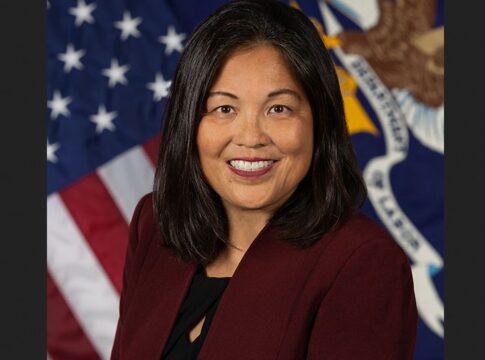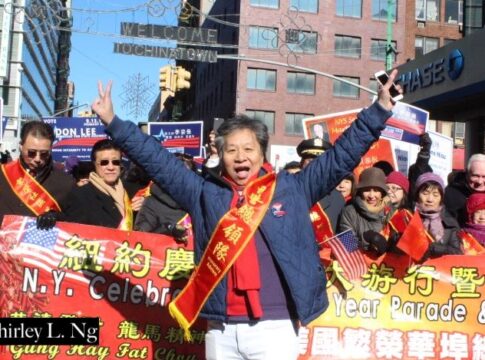By Hieu Gray
“What is the word for ‘anti-bacterial’ in Vietnamese?” I wonder to myself as I browse a local pharmacy with my father. A gentle man whose quiet demeanor belies a history of resilience and strength. First, as a refugee who fled Vietnam with my mother who was pregnant with me and my two-year old sister in tow almost 40 years ago and second, as a cancer patient undergoing chemo for multiple myeloma. There are many things that I wish I could say to him, but I, sadly, possess only a rudimentary understanding of the Vietnamese language to express my true thoughts and feelings. He is considered a high-risk individual for COVID-19; therefore, it is imperative that we find ways together to effectively communicate with one another.
The pandemic has only heightened feelings of helplessness and inadequateness as I find myself struggling to translate relatively common terms like “virus” and “pandemic.” Words that rarely left my lips before the outbreak. The rise of COVID-19 has made the language barrier between us feel like a chasm. But I know I am not alone in struggling to translate the pandemic for my elderly parents.
LATEST STORIES
Kiesha Chuop, 39, who is of Cambodian and Caucasian descent can only speak to her Cambodian father in English. As a mixed-race individual, her struggles are quite different from my own. “My dad thinks he speaks perfect English because he’s lived in America most of his life now. For me, it’s the emotional context in which he expresses himself. I get so upset with him over how blunt he can be. He’ll say the most hurtful things without batting an eyelash.”
Since the start of the pandemic, she finds herself having to try to explain to her father the severity of the pandemic. “He’s always brushing me off as if the pandemic isn’t as serious as the authorities make it out to be. I constantly have to tell him to wear a mask and practice social distancing. I definitely feel like if I knew more Khmer, I could express how serious it is to him and maybe then he’ll finally understand why I get so upset when he doesn’t adhere to the precautions and protocols.”
According to the website Clear Words Translations, the State of California had just 738 certified medical interpreters to serve 1.7 million people who spoke poor English. With a lack of in-person translators, the responsibility often falls on the shoulders of the relatives of elderly loved ones, especially in Asian American immigrant communities. Access to certified Vietnamese medical interpreters is even more sparse. According to the National Board of Certification for Medical Interpreters, only twenty-two Vietnamese medical interpreters exist in the country.
Last month, while waiting for my father’s oncologist in South Georgia to speak to us, I innocently suggested that he should consider the assistance of a medical interpreter. I noticed a shift in his mood. Immediately, I felt a wave of guilt rush over me. The last thing I want is for him to misinterpret my well-meant intentions. For him, he feels my Vietnamese is “good enough” to convey his thoughts; however, I do not have the same confidence in my language abilities. It is this disconnect that leads to tension and unease.
Oftentimes, Asian American children are the de facto translators for their parents. “I remember being a kid and having to speak for him because people couldn’t understand him,” Chuop states. “For me, it made me feel different from my friends and was an added pressure I don’t think is fair on a young kid.”
There are resources to help. PALS for Health, a language advocacy non-profit offers resources available in the form of translation services for patients. PALS goes a step further by also offering language skills assessments for health care workers, professional development training, and education for interpreters and translators.
Of course, there are adults who are confident in their communication with their elderly parents. Pat Young, 37, states, “My dad went to college in the Philippines where English is taught as a second language there. So most people are fluent by the time they come here.”
He acknowledges that “medical terms are a different language in itself and having to make life changing decisions can be overwhelming even if he (his father) is proficient in English where a minor loss in translation could make a big impact.”
“I honestly felt like such a horrible daughter because my dad would start speaking in Khmer and I didn’t know how to respond,” Chuop confides to me. It is important that we acknowledge these challenges and find a common ground where both cultures can co-exist.
It wasn’t until I began expressing my own linguistic shortcomings to friends who were also experiencing the same challenges that I felt seen and heard. Google translate has become my go-to resource for last-minute renditions. For the latest COVID-19 updates, my parents stay informed by watching Vietnamese-language broadcast newscasts. I have started creating flash cards for them of key phrases in both Vietnamese and English for them to exchange with their healthcare providers and this has proven successful. Ultimately, adult children should not feel ashamed or sorely responsible for the cultural divide that exists with their parents. Open dialogue and empathy is key in making both voices heard.
Hieu Gray is an award-winning producer, journalist, filmmaker, and social media consultant. For over a decade, she was a senior producer at CNN producing launch campaigns for Anthony Bourdain Parts Unknown and Larry King Live. Gray now head ups her own boutique production company Pho’nomenal Media focused on Asian American narratives. Her latest film Quan 13 is currently screening at select film festivals around the world.
Gray holds a B.A. in Journalism and Creative Writing from Emory University and an MFA in Poetry from New York University. You can reach her at [email protected] and www.hieugray.com .
AsAmNews has Asian America in its heart. We’re an all-volunteer effort of dedicated staff and interns. Check out our new Instagram account. Go to our Twitter feed and Facebook page for more content. Please consider interning, joining our staff, or submitting a story.









Thank you for this article Hieu and capturing, what I can only imagine is a more common predicament than not, for us 1.5 generation and later kids who struggle to have meaningful conversations with our loved ones.
I am not a member of the organization, but if I may point you to the work being done at PIVOT (The Progressive Vietnamese Organization), who put together a glossary of terms to discuss the current environment translated from English to Vietnamese (https://www.pivotnetwork.org/glossary?fbclid=IwAR3V6JddQf9u5qzn1dAbblfzCrrEZR7z1jH8oXbMhrpzuf-Nudh8YgFJyY4). It’s not perfect, but it can at least serve to supplement our reliance on Google Translate.